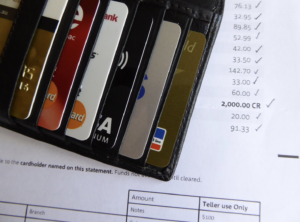
There are quite a few reasons that a lender looks at someones bank statement. Mostly, a lender wants to make sure that someone can afford a house downpayment, closing costs, and obviously monthly mortgage payments. Lenders will also look at a bank statement to see if any checks that have been written have bounced due to not having enough funds in your account. It will also look questionable and strange if someone has a significant deposit made into a bank account but the source is not easily able to be found. The opposite is true, too…if a large amount of money is going toward an account that is not clearly listed, questions will be raised.
For the most part, most lenders will look at a minimum of two months of bank statements. In some situations they will look for more than that. These bank statements include accounts for your checking account, savings account, and any other accounts you might have. Besides what has already been mentioned, lenders want to make sure that there hasn’t been any debts recently acquired. If you are self-employed and do not receive a W-2, lenders may ask to look at your most recent 12-24 months of bank statements.
If a lender notices a large sum of money in your account that may be used as a downpayment, your mortgage company will want you to obtain a letter from your person who gave you the money that states the money is a gift and not a loan. This is known as a gift letter. If you have receive a large amount of money and it was not for a gift, it is recommended that you wait at least sixty days (different if you are self employed) so questions will not be asked in regards to the significant amount of money.
If you have a reason to be concerned or wonder about transactions that show up on your bank statement, let us know and we would be happy to answer any questions.
